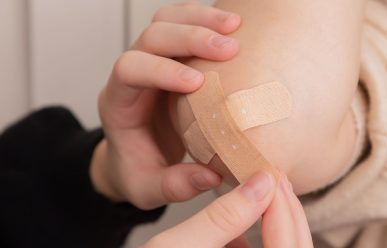In medical malpractice suits filed in Maryland, conducting a thorough expert deposition is extremely important to obtaining a successful result at trial. The following are a few important things a plaintiff’s attorneys must do in preparation for, and during the course of, an expert deposition:
- In advance of an expert deposition, the plaintiff’s attorney must obtain as much information about the expert as possible. For example, where he/she went to medical school, where he/she attended for his/her residency, his/her Fellowship, what hospitals he/she has privileges with, what Board Certifications he/she has, etc. Do not assume anything, especially that the expert passed Board Certifications on the first attempt.
- Obtain a list of medical publications that the expert has authored.
- Perform a Jury Verdict Search. It will list the names of the trials that the expert has testified in. Contact the attorneys who have questioned this expert in the past at depositions and at trial. You will be amazed at the wealth of information that they can provide you.
- The most important tip is to ask many questions regarding his familiarity with certain records. Many experts do not review the medical records as intensely as the attorney preparing them. Before questioning the expert, obtain a list of the medical records and deposition transcripts that he has received, and have those documents marked in as an exhibit or exhibits.
- Before you depose an expert, you must have a road map and a detailed outline. You need to have your exhibits pre-marked or at least in order. It will be crucial to your examination when you depose the expert.
- Ask the expert if he/she has ever previously worked with the law firm or client that he/she is proposing testimony for. The information you find out may surprise you and may create a conflict. At the very least, you may impeach his credibility at trial by getting an admission that he has testified for that same law firm multiple times. If the expert has testified multiple times for the law firm, find out the names of the cases, the case numbers, and the venues of each case.
- You need to extensively research medical treatises, journals, and articles in the area of medicine the expert is testifying on. For example, if you depose an expert in cardiothoracic surgery who performs Left Ventricular Assisted Devices (LVADs) surgery, you better know everything about the procedure itself and the medical articles and journals that are relevant to the subject.
- Make sure you know the deposition testimony for all party and non-party experts who have previously testified. Your preparation may affect the expert’s opinions, may make him/her change direction on a particular opinion, or at the very least make him/her very uncomfortable. Trust me, the expert in most instances will not be as prepared as you are. They will most likely only put a few hours into reading the medical records and deposition transcripts. They will not put the time that you will put into them.
- Make sure when you depose the expert you have an easy transcript to read. You will be using that deposition transcript ultimately at trial as a means to impeach the witness. Having sound and easily readable questions that will elicit short and understandable answers will make it easy for the jury to listen to you when you cross examine that expert at trial.
- Make sure you are well rested for the deposition. You will need all of your focus and concentration during the deposition. You will need to listen to the expert very carefully, especially regarding the testimony that he is offering for the defendant.


